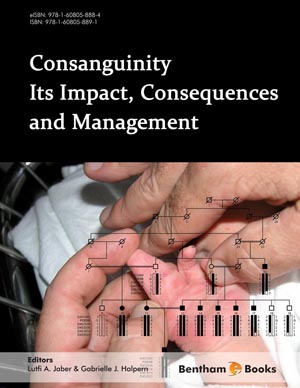Abstract
Even though most people accept that consanguinity can have a deleterious effect on the health of the offspring, the fact that such marriages have been practiced worldwide for many hundreds of years indicates that the advantages are generally perceived as greatly outweighing the disadvantages. The detrimental health effects are mainly caused by the expression of rare, recessive genes inherited from a common ancestor(s), and the closer the biological relationship between the parents, the greater is the probability that their offspring will inherit identical copies of disease-causing recessive genes. In most families where the parents are first cousins this added risk is estimated to be about 2-4% above the background risk in the general community. In recent years there has been a general overall reduction in the frequency of consanguineous marriages worldwide, although the current rates in most of the countries where they are practiced are still unacceptably high. Attempts to reduce the incidence of consanguineous marriages should be undertaken with tact and diplomacy together with an insight into and knowledge of the cultural and societal norms of the communities concerned. We describe attempts in various countries to offer training, educational and counseling programs aimed at reducing the incidence of consanguineous marriages. We also discuss whether religious intervention to discourage the practice of consanguineous marriage would be effective, and whether the participation of a Muslim cleric or physician might influence the decision-making process among women (and their husbands) with regard to their acceptance of prenatal diagnosis and termination of pregnancy.
Keywords: Consanguineous marriages, counseling, education, frequency, recessive genes, religious intervention.






















